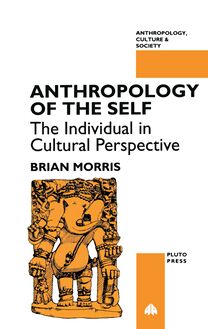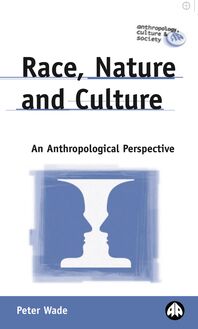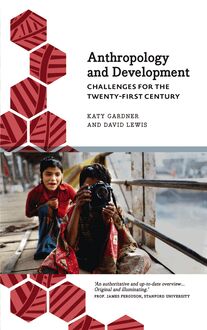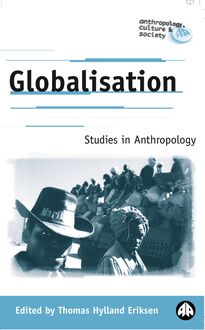-
 Univers
Univers
-
 Ebooks
Ebooks
-
 Livres audio
Livres audio
-
 Presse
Presse
-
 Podcasts
Podcasts
-
 BD
BD
-
 Documents
Documents
-
- Cours
- Révisions
- Ressources pédagogiques
- Sciences de l’éducation
- Manuels scolaires
- Langues
- Travaux de classe
- Annales de BEP
- Etudes supérieures
- Maternelle et primaire
- Fiches de lecture
- Orientation scolaire
- Méthodologie
- Corrigés de devoir
- Annales d’examens et concours
- Annales du bac
- Annales du brevet
- Rapports de stage
La lecture à portée de main
Vous pourrez modifier la taille du texte de cet ouvrage
Découvre YouScribe en t'inscrivant gratuitement
Je m'inscrisDécouvre YouScribe en t'inscrivant gratuitement
Je m'inscrisEn savoir plus
Vous pourrez modifier la taille du texte de cet ouvrage
En savoir plus

Description
Until now, debates about indigenous knowledge have largely been conducted in terms of agricultural and environmental issues such as bio-piracy and gene patenting. This collection breaks new ground by opening up the theoretical debate to include areas such as post-war traumatic stress counselling, representations of nuclear capability, architecture, mining, and the politics of eco-tourism.
1. Negotiating Local Knowledge: An Introduction by Johan Pottier
2. A Possible Explanation For The Lack Of Explanation: Or, ‘Why The Master Builder Can’t Explain What He Knows’ (Yemen) by Trevor H.J. Marchand
3. Explosive Narratives: The Articulation Of ‘Nuclear Knowledge’ In Mumbai, India by Raminder Kaur
4. Knowledge Interfaces And Practices Of Negotiation: Cases From A Women’s Group In Bolivia And An Oil Refinery In Wales, United Kingdom by Alberto Arce And Eleanor Fisher
5. Anti-Social ‘Social Development’? Governmentality, Indigenousness And The Dfid Approach On Montserrat by Jonathan Skinner
6. ‘All Been Washed Away Now’: Tradition, Change And Indigenous Knowledge In A Queensland Aboriginal Land Claim by Benjamin Richard Smith
7. Managing Natural Resources In Eastern Algarve, Portugal: An Assessment Of The Policy Uses Of Local Knowledge(S) by Manuel João Ramos, António Medeiros, Pedro Sena And Gonçalo Praça
8. Interfaces Of Knowledge: The Revival Of Temples In West Hunan, China by Mary Rack
9. The Global Flow Of Knowledge On War Trauma: The Role Of The ‘Cinnamon Garden Culture’ In Sri Lanka by Alex Argenti-Pillen
10. Modern Information Warfare Versus Empirical Knowledge: The International Framing Of ‘The Crisis’ In Eastern Zaire, 1996 by Johan Pottier
11. Playing On The Pacific Ring Of Fire: Negotiation And Mining In Papua New Guinea by Paul Sillitoe And Robin A. Wilson
12. From Seduction To Miscommunication: The Confession And Presentation Of Local Knowledge In ‘Participatory Development’ (Batak, The Philippines) by Dario Novellino
13. Silencing The Nile (Uganda) by Stan Frankland
Index
Sujets
Informations
| Publié par | Pluto Press |
| Date de parution | 20 avril 2003 |
| Nombre de lectures | 1 |
| EAN13 | 9781783719273 |
| Langue | English |
Informations légales : prix de location à la page 0,1850€. Cette information est donnée uniquement à titre indicatif conformément à la législation en vigueur.
Extrait
NEGOTIATING LOCAL KNOWLEDGE
Anthropology, Culture and Society
Series Editors:
Professor Thomas Hylland Eriksen, University of Oslo
Dr Katy Gardner, University of Sussex
Dr Jon P. Mitchell, University of Sussex
RECENT TITLES
Land, Law and Environment:
Mythical Land, Legal Boundaries
Edited by A LLEN A BRAMSON AND D IMITRIOS T HEODOSSOPOULOS
The Trouble with Community:
Anthropological Reflections on Movement, Identity and Collectivity
V ARED A MIT AND N IGEL R APPORT
Anthropology and the Will to Meaning:
A Postcolonial Critique
V ASSOS A RGYROU
The War of Dreams:
Exercises in Ethno-Fiction
M ARC A UGÉ
Orange Parades:
The Politics of Ritual, Tradition and Control
D OMINIC B RYAN
Identity and Affect:
Experiences of Identity in a Globalising World
Edited by
J OHN R. C AMPBELL AND A LAN R EW
Risk Revisited
Edited by P AT C APLAN
Macedonia:
The Politics of Identity and Difference
Edited by J ANE K. C OWAN
Ethnicity and Nationalism:
Anthropological Perspectives
T HOMAS H YLLAND E RIKSEN
A History of Anthropology
T HOMAS H YLLAND E RIKSEN AND F INN S IVERT N IELSON
Small Places, Large Issues:
An Introduction to Social and Cultural Anthropology
T HOMAS H YLLAND E RIKSEN
Life on the Outside:
The Tamil Diaspora and Long-Distance Nationalism
Ø IVIND F UGLERUD
Anthropology, Development and the Post-modern Challenge
K ATY G ARDNER AND D AVID L EWIS
Power and its Disguises:
Anthropological Perspectives on Power
J OHN G LEDHILL
Youth and the State in Hungary:
Capitalism, Communism and Class
L ÁSZLÓ K ÜRTI
Locating Cultural Creativity
Edited by J OHN L IEP
Cord of Blood:
Possession and the Making of Voodoo
N ADIA L OVELL
Ethnography and Prostitution in Peru
L ORRAINE N ENCEL
Witchcraft, Power and Politics:
Exploring the Occult in the South African Lowveld
I SAK A. N IEHAUS with E LIAZAAR M OHLALA AND K ALLY S HOKANE
Power, Community and the State:
The Political Anthropology of Organisation in Mexico
M ONIQUE N UIJTEN
Social Mobility in Kerala:
Modernity and Identity in Conflict
F ILIPPO O SELLA AND C AROLINE O SELLA
Class, Nation and Identity:
The Anthropology of Political Movements
J EFF P RATT
Bearing Witness
F IONA C. R OSS
Landscape, Memory and History:
Anthropological Perspectives
Edited by P AMELA J. S TEWART AND A NDREW S TRATHERN
Race, Nation and Culture:
An Anthropological Perspective
P ETER W ADE
NEGOTIATING LOCAL KNOWLEDGE
Power and Identity in Development
E DITED BY
J OHAN P OTTIER , A LAN B ICKER AND P AUL S ILLITOE
First published 2003
by PLUTO PRESS
345 Archway Road, London N6 5AA
and 22883 Quicksilver Drive,
Sterling, VA 20166–2012, USA
www.plutobooks.com
Copyright © Johan Pottier, Alan Bicker and Paul Sillitoe 2003
The right of the individual contributors to be identified as the author of this work has been asserted by them in accordance with the Copyright, Designs and Patents Act 1988.
British Library Cataloguing in Publication Data
A catalogue record for this book is available from the British Library
ISBN 0 7453 2007 4 hardback
ISBN 0 7453 2006 6 paperback ISBN 9 7817 8371 927 3 ePub ISBN 9 7817 8371 928 0 Kindle
Library of Congress Cataloging in Publication Data
Negotiating local knowledge : power and identity in development / edited by Johan Pottier, Alan Bicker and Paul Sillitoe.
p. cm. –– (Anthropology, culture, and society)
ISBN 0–7453–2007–4 (hardback) –– ISBN 0–7453–2006–6 (pbk.)
1. Indigenous peoples––Politics and government. 2. Political anthropology. 3. Ethnophilosophy. I. Bicker, Alan. II. Sillitoe, Paul. III. Pottier, Johan. IV. Series.
GN380 .N44 2003
306.2––dc21
2002156330
10 9 8 7 6 5 4 3 2 1
Designed and produced for Pluto Press by
Chase Publishing Services, Fortescue, Sidmouth EX10 9QG, England
Typeset from disk by Stanford DTP Services, Towcester
Printed in the European Union by
Antony Rowe Ltd, Chippenham and Eastbourne, England
CONTENTS
Acknowledgements
1
Negotiating local knowledge: An introduction
Johan Pottier
2
A possible explanation for the lack of explanation; Or, ‘why the master builder can’t explain what he knows’: Introducing informational atomism against a ‘definitional’ definition of concepts
Trevor H.J. Marchand
3
Explosive narratives: The articulation of ‘nuclear knowledge’ in Mumbai
Raminder Kaur
4
Knowledge interfaces and practices of negotiation: Cases from a women’s group in Bolivia and an oil refinery in Wales
Alberto Arce and Eleanor Fisher
5
Anti-social ‘social development’? Governmentality, indigenousness and the DFID approach on Montserrat
Jonathan Skinner
6
‘All been washed away now’: Tradition, change and indigenous knowledge in a Queensland Aboriginal land claim
Benjamin Richard Smith
7
Managing natural resources in eastern Algarve, Portugal: An assessment of the policy uses of local knowledge(s)
Manuel João Ramos, António Medeiros, Pedro Sena and Gonçalo Praça
8
Interfaces of knowledge: The revival of temples in West Hunan, China
Mary Rack
9
The global flow of knowledge on war trauma: The role of the ‘Cinnamon Garden culture’ in Sri Lanka
Alex Argenti-Pillen
10
Modern information warfare versus empirical knowledge: Framing ‘the crisis’ in Eastern Zaire, 1996
Johan Pottier
11
Playing on the Pacific ring of fire: Negotiation and knowledge in mining in Papua New Guinea
Paul Sillitoe and Robin A. Wilson
12
From seduction to miscommunication: The confession and presentation of local knowledge in ‘participatory development’
Dario Novellino
13
The still waters of the Nile
Stan Frankland
List of Contributors
Index
ACKNOWLEDGEMENTS
The organisation of a large event such as the Association of Social Anthropologists’ conference in 2000 at the School of Oriental and African Studies, University of London, and the subsequent collection of papers into a volume like this one, depends on the support and assistance of numerous people. We wish to thank in particular Jennifer Law and her band of postgraduate volunteers from the MA Anthropology of Development programme (SOAS) for efficient conference administration; Suzanna Cassidy for generous and invaluable assistance with preparing the manuscript; and Hadija Pottier, Fifi Pottier and Rachelle Woolman for witty conversations (and loads of fun). We also applaud the popular bank that used lavish space and inspired graphics at Heathrow airport to remind all travellers: ‘Never Underestimate the Importance of Local Knowledge’ (summer 2002).
We dedicate this book to the memory of Patrick Sikana whose young life and career as an advocate of local knowledge and rights was brutally cut short in a plane crash in Adbidjan
1
NEGOTIATING LOCAL KNOWLEDGE: AN INTRODUCTION
Johan Pottier
Two decades ago, social anthropology became interested in ‘indigenous knowledge’ as a possible antidote to the failures of externally driven, transfer-of-technology focused, top-down development (UNESCO-Nuffic 1999: 11; Warren 1998). Underpinned by some deeply rooted assumptions, for instance, that local knowledge was bounded, static, consensual, non-reflective and unscientific (Howes and Chambers 1979), the initial search for indigenous knowledge convinced both anthropologists and developers that it was legitimate to look for and extract local knowledge elements for use in science. If local knowledge had anything to offer, it was because science could make use of it. The presumed consensual character of local knowledge, moreover, resulted in the further assumption that local knowledge ‘systems’ applied uniformly over extensive regions and time zones. Concretely and positively, the ‘discovery’ of indigenous knowledge demanded that development practitioners be receptive to the technology, skills and accumulated knowledge of people everywhere (Brokensha, Warren and Werner 1980; Richards 1985). On the negative side, the enthusiasm for local knowledge data produced some exaggerated claims about its value. Thus in agricultural research, correcting the bias against local knowledge sometimes resulted in the erroneous view that peasant farmers were collectively rational, even super-rational, everywhere (Fairhead 1993).
But the neat distinction between science and local knowledge did not last. First, under scrutiny, local knowledge began to reveal itself as the multifarious, contestable product of an ever-evolving syncretistic process (Scoones and Thompson 1994; Mundy and Compton 1995; Sillitoe 1998). The unitary concept ‘local knowledge’ fragmented into a plurality of local knowledges. Second, science came to be viewed as less universal and more particularistic than hitherto assumed (Agrawal 1995; Gardner and Lewis 1996). These new understandings prompted anthropologists to rethink the dichotomy. Increasingly, the blurring of this grand divide made researchers more conscious of the political economy of knowledge-for-development; that is, more aware of the risk of intellectual (and material) hegemony and more aware that a degree of local autonomy is required if sustained development is to emerge.
The post-modern challenge, however, also problematised the concept of hegemony: the exercise of power was complex business. At the Fourth Decennial Conference of the ASA (Association of Social Anthropologists of the Commonwealth), a short decade ago, there was consensus that ‘the bounded’ needed to be replaced by ‘the relational’ – and that this substitution, this moving away from ontological categories towards interwoven patterns, meant that from now on anthropologists would regard ‘knowledge’ as simultaneously local and global (Moore 1996). The conference called for a better appreciation of ‘the complexities and techniques of knowledge production within and between societies, groups and regions’ (1996: 14; emphasis added). Today, the intersection of power and knowledge remains fraught with unce
-
 Univers
Univers
-
 Ebooks
Ebooks
-
 Livres audio
Livres audio
-
 Presse
Presse
-
 Podcasts
Podcasts
-
 BD
BD
-
 Documents
Documents
-
Jeunesse
-
Littérature
-
Ressources professionnelles
-
Santé et bien-être
-
Savoirs
-
Education
-
Loisirs et hobbies
-
Art, musique et cinéma
-
Actualité et débat de société
-
Jeunesse
-
Littérature
-
Ressources professionnelles
-
Santé et bien-être
-
Savoirs
-
Education
-
Loisirs et hobbies
-
Art, musique et cinéma
-
Actualité et débat de société
-
Actualités
-
Lifestyle
-
Presse jeunesse
-
Presse professionnelle
-
Pratique
-
Presse sportive
-
Presse internationale
-
Culture & Médias
-
Action et Aventures
-
Science-fiction et Fantasy
-
Société
-
Jeunesse
-
Littérature
-
Ressources professionnelles
-
Santé et bien-être
-
Savoirs
-
Education
-
Loisirs et hobbies
-
Art, musique et cinéma
-
Actualité et débat de société
- Cours
- Révisions
- Ressources pédagogiques
- Sciences de l’éducation
- Manuels scolaires
- Langues
- Travaux de classe
- Annales de BEP
- Etudes supérieures
- Maternelle et primaire
- Fiches de lecture
- Orientation scolaire
- Méthodologie
- Corrigés de devoir
- Annales d’examens et concours
- Annales du bac
- Annales du brevet
- Rapports de stage




















